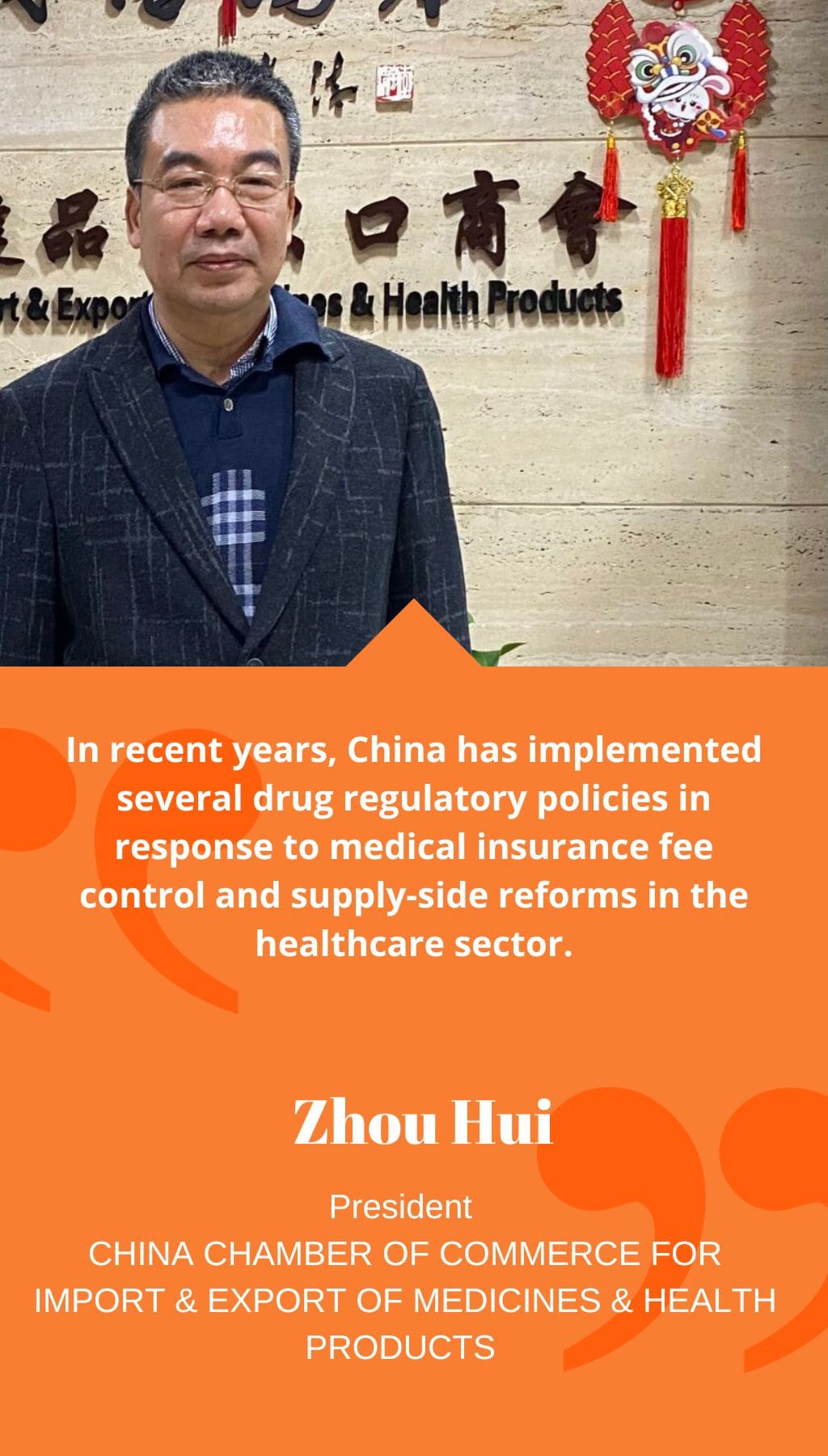
- China | 9 May 2018

Can you provide a brief history of CCCMHPIE and highlight how it serves as a bridge between the pharma industry in China and the government?
Founded in 1989 and registered at the Ministry of Civil Affairs, the China Chamber of Commerce for Import and Export of Medicines and Health Products (CCCMHPIE) has evolved to become China’s largest healthcare industry association. It comprises research, production, and trade companies in the healthcare sector. With over 2,500 member companies, CCCMHPIE covers various areas such as TCM raw materials, herbal extracts, pharmaceuticals, medical devices, health products, and more. As a bridge between the government and enterprises, CCCMHPIE utilizes its industry resources and connections to facilitate social governance, improve public service, and nurture a favorable policy environment. It plays a crucial role in enhancing industry standards, regulations, technologies, branding, and trustworthiness. CCCMHPIE also provides training and conducts research projects to guide its members in adopting innovation-driven strategies and increasing their international competitiveness.
The CFDA has introduced sweeping changes to the regulatory environment in recent years. How have domestic companies been impacted as they adapt to meet more stringent standards?
In recent years, China has implemented several drug regulatory policies in response to medical insurance fee control and supply-side reforms in the healthcare sector. These policies include changes in the review process for drugs and medical devices, the abolishment of API approval, the introduction of the Marketing Authorization Holder (MAH) system, equivalency assessment of generic drugs, transformation of GMP and GSP certification, and the implementation of the two invoices policy in the supply chain. These changes aim to increase drug affordability, improve overall quality in the healthcare industry, promote industrial restructuring and upgrading, and enhance international competitiveness. However, these new regulations have made compliance more stringent for Chinese companies. While they may face short-term challenges, companies that actively adapt to the new requirements, prioritize innovation and quality, and align with supporting policies will embrace another round of development in the longer term.
What progress has China made towards bolstering the availability of a highly skilled labor force in support of its pharmaceuticals industry?
China recognizes the importance of promoting TCM (Traditional Chinese Medicine) innovation and international drug registration, which requires a highly skilled labor force. To achieve this, several mechanisms have been implemented. Firstly, the One Thousand Talent Project was introduced to attract overseas high-skilled Chinese talents specializing in innovation and international registration to return to China and start businesses. Secondly, executive training programs have been established to improve drug quality standards and enhance corporate competitiveness, nurturing a pool of leading entrepreneurs for the industry. Thirdly, occupational and skills training have been intensified, aiming to cultivate a group of highly skilled professionals through the establishment of educational and real-practice bases. Lastly, a business innovation center has been established to train professionals and promote innovation and resource sharing, further supporting the development of a skilled labor force in the pharmaceutical industry.
What role will Chinese companies play in securing a healthier future for mankind?
The healthcare industry in China recognizes that humankind is facing new challenges due to industrialization, urbanization, aging, changes in disease spectrum, ecological degradation, and shifts in lifestyles. Chinese companies will play a significant role in addressing these challenges and securing a healthier future for mankind. First, they will focus on promoting technological innovation, particularly in patented drugs, innovative TCM drugs, and new formulations. Second, they will strive to improve quality standards systems and align drug standards with international levels. Lastly, Chinese companies will deepen international cooperation and further promote the internationalization of the industry through global resource allocation. By prioritizing these areas, Chinese companies aim to contribute to the advancement of healthcare and well-being on a global scale.














